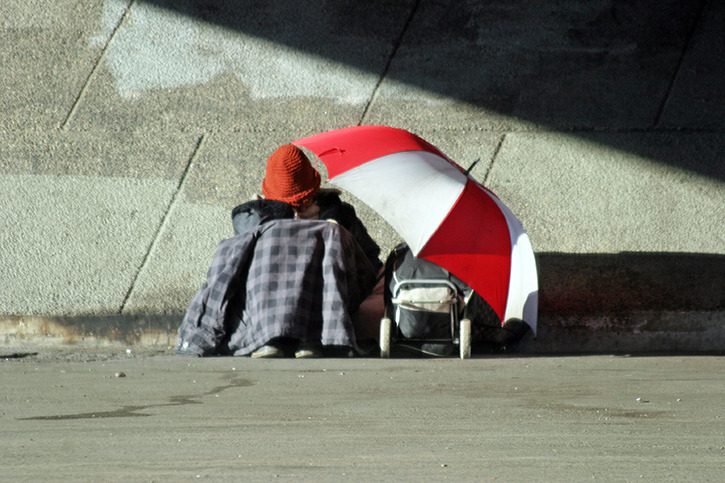

Should we comfort or confront? Help or hinder? Attend to or arrest?
Most of us who are not drug addicted, had stable upbringings and live relatively normal lives don’t deal well with the mostly drug-addled, often mentally ill and always destitute folks who live under bridges, in the woods and wherever they can in our community.
Do we hate them or hug them? Do we bring them food and a dollar, or do we bring them a harsh word and a rebuke?
If we are nasty, do we enrage? Yet if we are kind, do we enable?
A lot of questions I do not attempt to answer here. And if social media was your guide (and it emphatically should not be) you would see that everyone with an Internet connection has the solution. From the fascist “kill the homeless” to the economically simplistic “build them homes” you see it all.
When we use the term homeless, what do we mean? We mean individuals who, for whatever reason, can’t or won’t access housing. But there is a dangerous and just inaccurate tone that permeates the discourse about homelessness as we lump a large group of people under one label. There are many reasons for homelessness and many different folks you’ll encounter on the streets.
This is not just one demographic.
Poor, yes. Addicted, mostly. Mental health problems, certainly some if not many. But what I’ve heard from those who are paying close attention is there is a relatively new crop of folks rolling in to Chilliwack in recent months who are more aggressive and violent and criminal than what we’ve seen before.
A number of people have said this recently, including Coun. Ken Popove who visited one of the larger homeless camps in Chilliwack in the Eagle Landing area a few months ago. It’s there he says he saw two groups. One is the almost stereotypical, older, down-on-their luck group of mostly men. Some of these folks even live out in the woods intentionally; they don’t want a roof. But then there is another “type” if not new, then newly growing in size. They are a meaner, more hardened bunch of younger men, women too, running around stealing stuff and living rough.
The increase in numbers of the more criminally-minded folks coupled with the city’s recent bylaw amendment to allow overnight camping for homeless people in parks has some people conflating issues on social media.
Last October, BC Supreme Court Chief Justice Christopher Hinkson ruled that homeless people in Abbotsford are allowed to erect temporary structures in public parks overnight because of a lack of shelter spaces.
This ruling means that bylaws in municipalities across B.C. now will need to be changed to come into compliance with the high court. Chilliwack pre-emptively changed its bylaw recently to allow overnight camping, specifically for homeless people, and under very stringent regulations: from 8 p.m. to 8 a.m. and not closer than five metres to any path, playground structure, pond or anything else.
The move has been decried in shrill tones online by folks who either didn’t read the stories or can’t grasp the practical purpose of such a move. City hall did this not to open the parks to free camping. The bylaw was amended to avoid a potential, costly legal foray down the road. Basically, they had to do it.
If you are seeing people hanging around in parks more lately, that has nothing to do with the bylaw changes.
Those who are down on their luck and want to get help should be helped by the community, and the Salvation Army, Ruth & Naomi’s and the Cyrus Centre are certainly doing their part.
At the same time, patience is flagging for this “new” breed on bikes with backpacks and hoodies breaking into cars and stealing from backyards.
What’s worrying to me is the understandable ill will towards petty thieves living rough in our community will spread to every single person who is homeless and desperate looking for a place to sleep for the night.
Those who say they have an easy solution to homelessness are either lying or they don’t understand the situation.
We need to tread carefully with the homeless and, as we always should, treat each human as an individual rather than as a symptom of some perceived societal breakdown
Paul J. Henderson – Chilliwack Times
